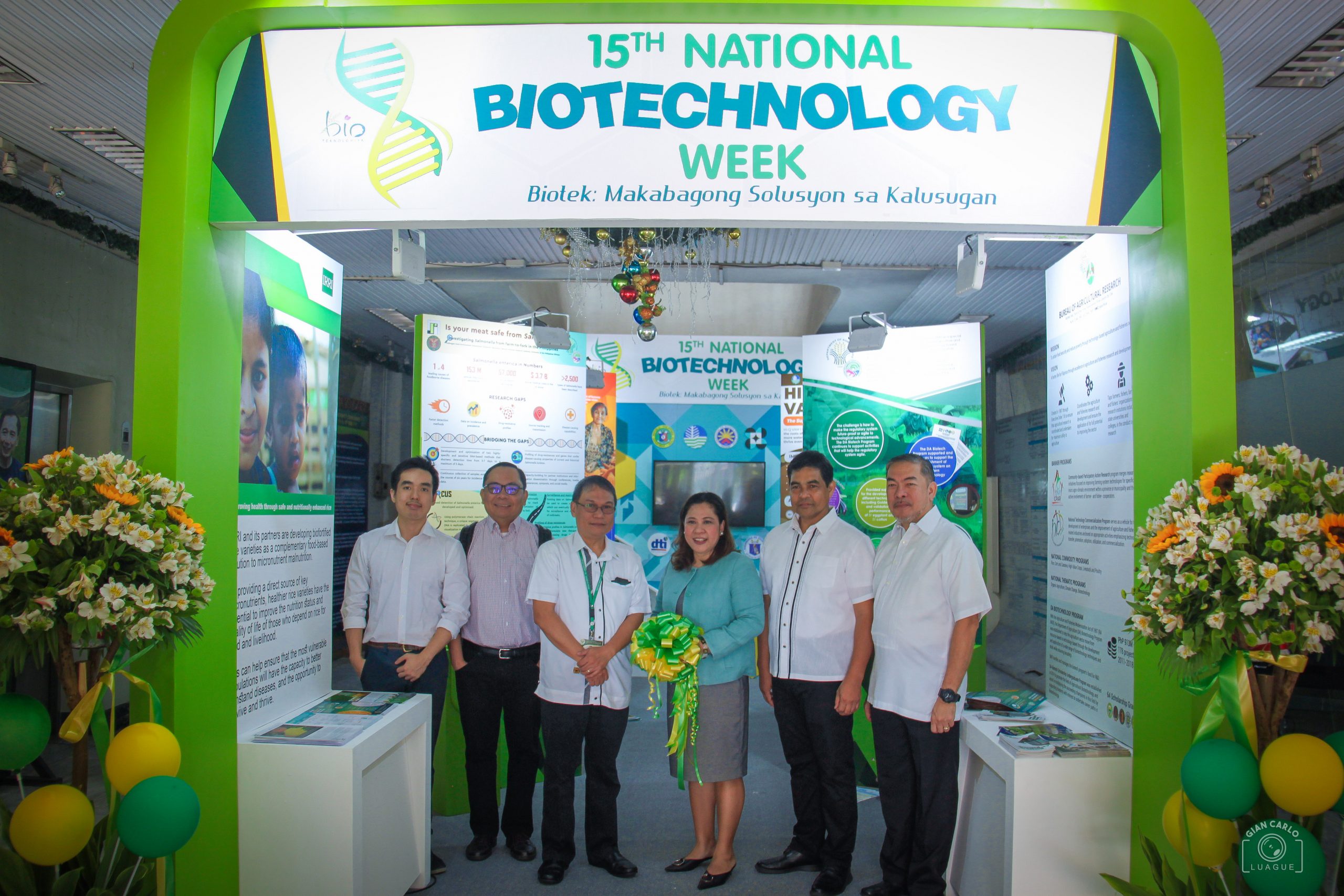
The Department of Agriculture-Biotechnology Program Office (DA-BPO) opened the 15th National Biotechnology Week (NBW) celebration with a techno-exhibit that highlights biotechnology applications for food safety and food security on November 25, 2019 at the DA Central Office.
“This (celebration) is in recognition of the beneficial impact of safe and responsible use of biotechnology and its products towards achieving and sustaining food security, equitable access to health services, and a sustainable and safe environment,” said DA-BPO Program Director-Coordinator Dionisio Alvindia.
With the theme “Biotek: Makabagong Solusyon sa Kalusugan,” the 2019 NBW is led by the Department of Health as chair for the national celebration focusing on health biotechnology.
DA, as a participating agency, will have its own share on the theme by highlighting the biotech applications and approaches towards food safety management through a series of activities and techno-exhibits.
On November 26, 2019, the DA-BPO will hold the 4th Filipino Faces of Biotechnology Awards to recognize outstanding scientists, civil servants, farmers, communicators, and student leaders who championed biotechnology in the country.
In addition, the 2019 DA Biotech Program Scholars’ Summit will be held on November 27 to inspire students to become champions in the field of agricultural biotechnology.
The DA-BPO will also facilitate discussions on the advances of agricultural biotech research and development under the DA Biotech Program on November 28, 2019 at the Dr. Enrique T. Ona Auditorium of the National Kidney and Transplant Institute Diagnostic Center.
The week-long exhibit and public awareness activities on biotech by various government and non-government agencies are in line with the Presidential Proclamation 1414, series of 2007 institutionalizing the NBW celebration on the last week of November of every year.
The DA-BPO supports studies and activities that generate improved products and processes, influence policy decision-making, increase public awareness and understanding, and enhance capabilities of regulatory and research institutions. ### (Gumamela Celes Bejarin, DA-AFID)













